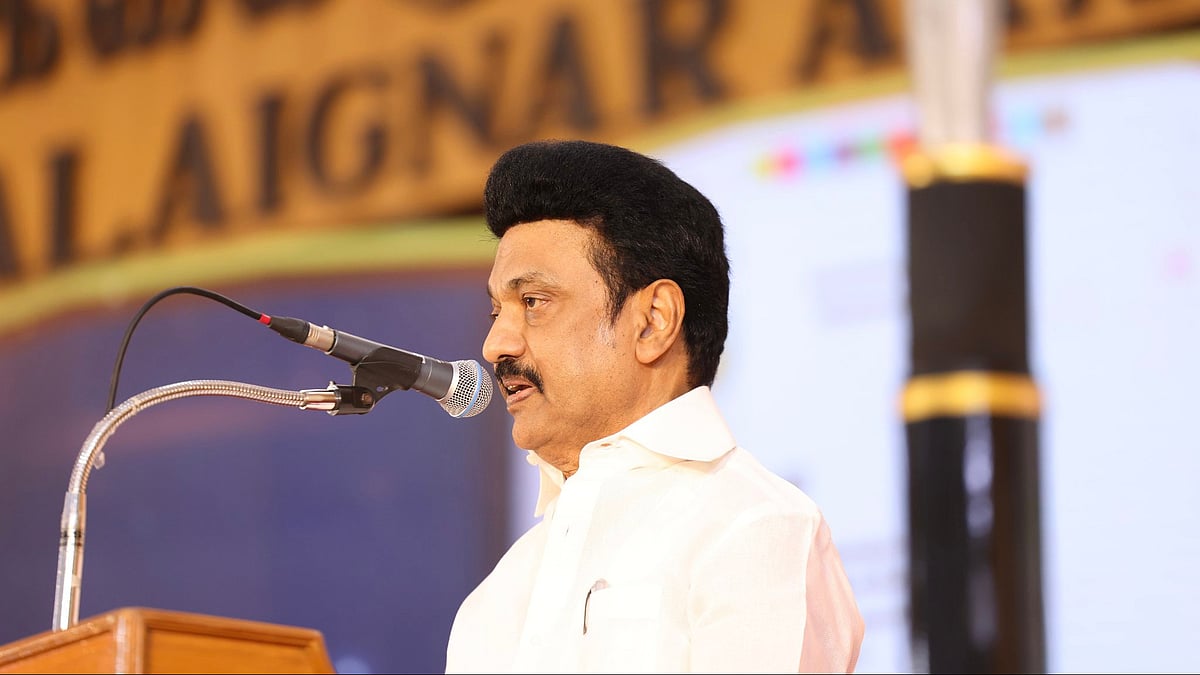The ugly spat between the Tamil Nadu government and the Centre over the implementation of the New Education Policy has echoes of the anti-Hindi agitations that have rocked the state from time to time, and is a blow to cooperative federalism.
The MK Stalin government’s refusal to accept the three-language formula mandated by the policy has brought matters to a head with the Centre withholding over Rs 2000 crores under the Samagra Shiksha Abhiyan to the state unless it accepts the NEP.
Stalin has said the opposition to the NEP was not merely because of the attempt to impose Hindi on the state, but also because the policy would have serious consequences on the future of students in the state and the social justice system. He announced dramatically that if Tamil Nadu accepted the NEP, it would regress 2000 years and vowed not to implement it even if the Centre offered Rs 10,000 crores.
The NEP recommends a three-language formula advocating study of at least two Indian languages. Tamil Nadu sees this as a backdoor imposition of Hindi, a sensitive issue in the state since the anti-Hindi agitations of the 1960s. Both the ruling DMK and the opposition AIADMK have opposed the three-language formula. Traditionally, Tamil Nadu has followed the two-language formula of teaching English and Tamil in schools.
The TN government has also accused the centre of undermining the autonomy of the state in deciding its educational policies. Education is on the concurrent list, and as such, states and the centre can legislate on the subject. Tamil Nadu is of the view that the NEP imposes a uniform policy that does not take into account cultural, regional and socio-economic differences.
The NEP envisages a four year graduate course, with exit options at various stages, such as a certificate after one year, a diploma after two years and a degree after four years. Educational experts in Tamil Nadu have said such a formula will increase dropout rates. Another flashpoint between the state and the centre is common entrance exams such as CUET and NEET.
Tamil Nadu has refused to accept the latter and has even passed a resolution in the Assembly opposing it. The opposition to CUET is along similar lines, as the state feels the entrance exam is heavily tilted towards students who follow the CBSE syllabus and puts those passing out of state boards at a disadvantage. The state government has also said CUET and NEET encourage dependency on coaching centres, and are skewed against those students who are from financially weak backgrounds.
Union HRD Minister Dharmendra Pradhan and Chief Minister Stalin have engaged in a slanging match with the former urging the CM to rise above politics and work for the educational progress of the state while the latter has urged Prime Minister Narendra Modi to release funds under the SSA for the state.
In the state itself, Deputy CM Udayanadhi Stalin and state BJP chief K Annamalai have been exchanging sharp words on the issue, fuelled by the ‘Get Out Modi’ and ‘Get Out Stalin’ campaigns. How the issue will play out in the weeks and months to come will decide the future of thousands of students in Tamil Nadu.
